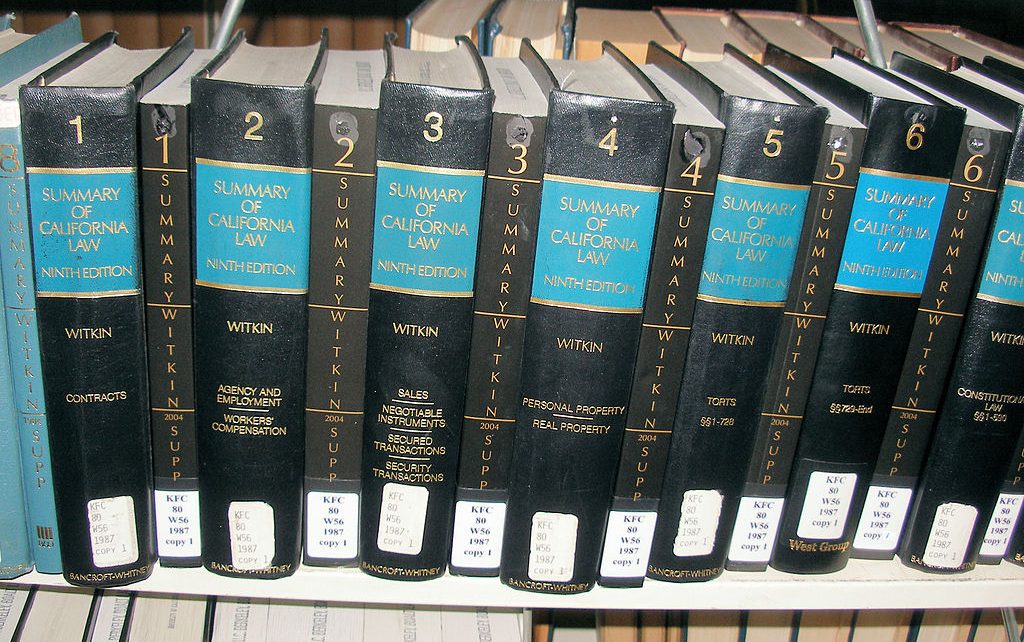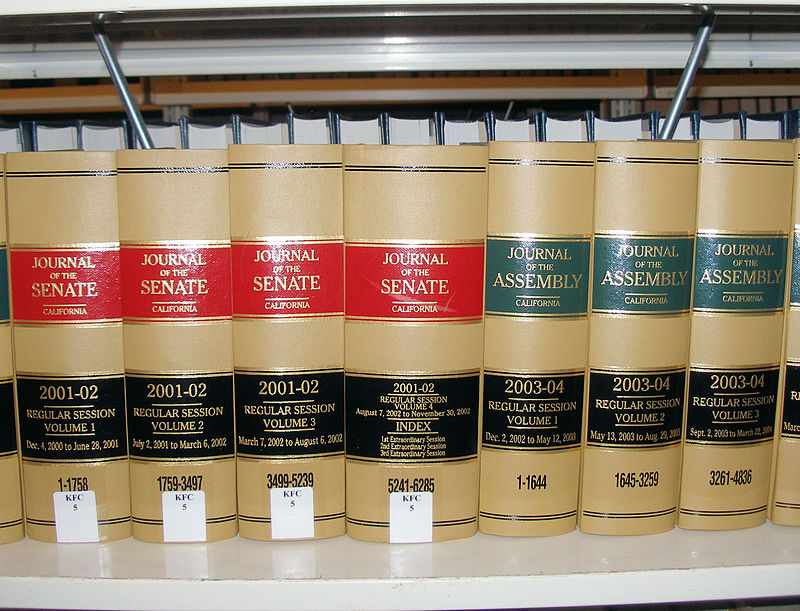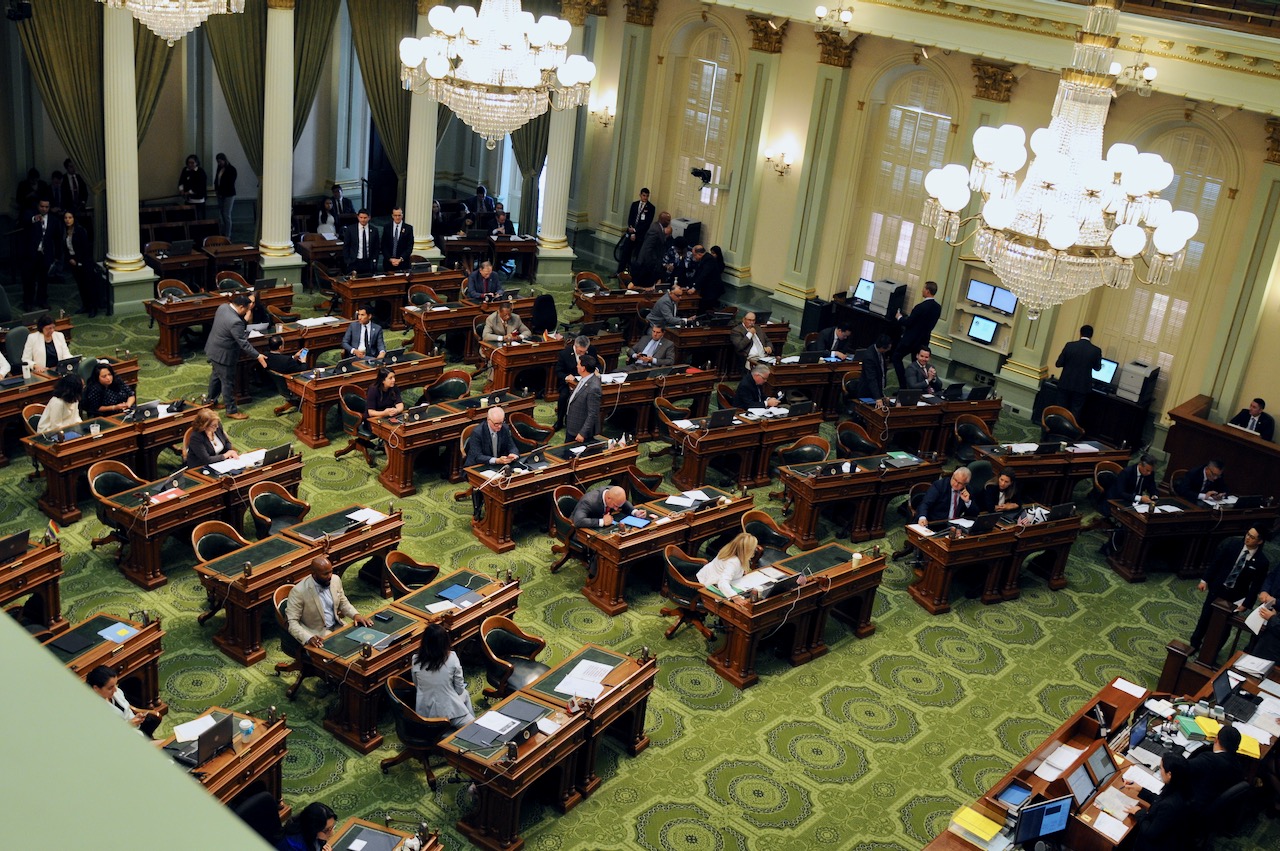
Summary of California Law books. (Photo: Wikipedia)
California’s Reenactment Rule
The Legislature is not required to re-enact other code sections that were affected by the change
By Chris Micheli, October 15, 2020 2:36 am
California’s Constitution, in Article IV, Section 9, provides “A section of a statute may not be amended unless the section is re-enacted as amended.” What does that mean?
According to the courts, the purpose of the constitutional reenactment rule, which prohibits amending a section of statute unless the section is reenacted as amended, is “to avoid enactment of statutes in terms so blind that legislators themselves are deceived in regard to their effect.” The rule applies to bills which are amending some former act.
However, the reenactment rule does not apply to the addition of new code sections or enactment of entirely independent acts that impliedly affect other code sections. In other words, when adding a new code section, the Legislature is not required to re-enact other code sections that were affected by the change.
There have been a number of court decisions addressing the reenactment rule. At least one court has opined that non-substantive amendments cannot serve to reenact substantive provisions of an invalid statute. See People v. Barros (2012) 209 Cal. App. 4th 1581, 1590. The court said that the bill that made a “nonsubstantive technical amendment to [an invalid statute] as it continued to appear in the annotated codes,” could likely not have “served to reenact the substantive provisions” of the invalid statute.
In The Gillette Company, et. al., v. Franchise Tax Board (2015) 62 Cal.4th 468, the court addressed whether California Revenue and Taxation Code Section 25128 violated the reenactment rule of the California Constitution. One purpose of that provision is to ensure that legislators are aware of statutory changes when they adopt legislation and to ensure that the public was apprised of changes in the law.
On this issue, the court found that, even without reenactment of CRTC Section 38006 to address the change, the Legislature and the public were reasonably notified of the changes in the law because the amendment to Section 25128 requiring the use of the double-weighted sales factor “expressly referenced the Compact, stating that it applied ‘[n]otwithstanding Section 38006 ….’”
Under this provision of the state constitution, the Legislature is required to reenact a code section when it amends that particular code section. In reviewing the contents of a bill that amends a code section, this rule also ensures that the bill reader can easily identify what changes are proposed by the bill because it amending a code section, the bill sets forth the changes within the context of the current statute.
- Conservation Banks - February 22, 2026
- Mergers of Unincorporated Associations - February 21, 2026
- A Historic Look at Bill Introductions in the California Legislature - February 21, 2026




